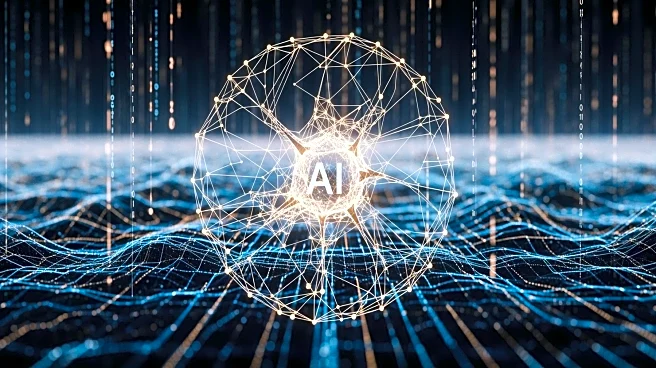What's Happening?
Research firm Five Percent has released a white paper analyzing online content from January 2020 to May 2025, revealing that AI-generated content has overtaken human-written articles on the internet. However,
the growth of AI-generated material has plateaued since mid-2023. The study suggests that the stabilization is due to AI-generated articles not performing well in search results, leading practitioners to maintain a steady proportion of AI content. The research utilized OpenAI's GPT-4o to generate test articles, which were then analyzed using Surfer's AI detection algorithm, showing a 99.4% accuracy rate in identifying AI-written content.
Why It's Important?
The plateauing of AI-generated content has significant implications for the digital content industry. It suggests that while AI tools have become prevalent, their effectiveness in search engine optimization may be limited, prompting content creators to rely more on human-written articles. This trend could impact the demand for AI content creation tools and influence the strategies of digital marketing and SEO professionals. Additionally, the study's findings may encourage search engines to refine their algorithms to better distinguish between AI and human-generated content, potentially affecting the visibility and reach of AI articles.
What's Next?
As AI-generated content stabilizes, stakeholders in the digital content industry may reassess their strategies. Content creators might focus on improving the quality of AI-generated articles to enhance search performance. Search engines could continue to develop more sophisticated algorithms to detect and rank AI content accurately. The industry may also see increased investment in AI detection tools to ensure content authenticity. Furthermore, ongoing research into AI content generation and detection will likely continue, influencing future trends in digital publishing.
Beyond the Headlines
The plateauing of AI-generated content raises questions about the long-term role of AI in content creation. Ethical considerations regarding the transparency and authenticity of AI-generated articles may become more prominent. The study highlights the need for critical evaluation of AI tools and their impact on the quality of information available online. As AI technology evolves, the balance between human and machine-generated content could shift, affecting cultural perceptions of authorship and creativity.











